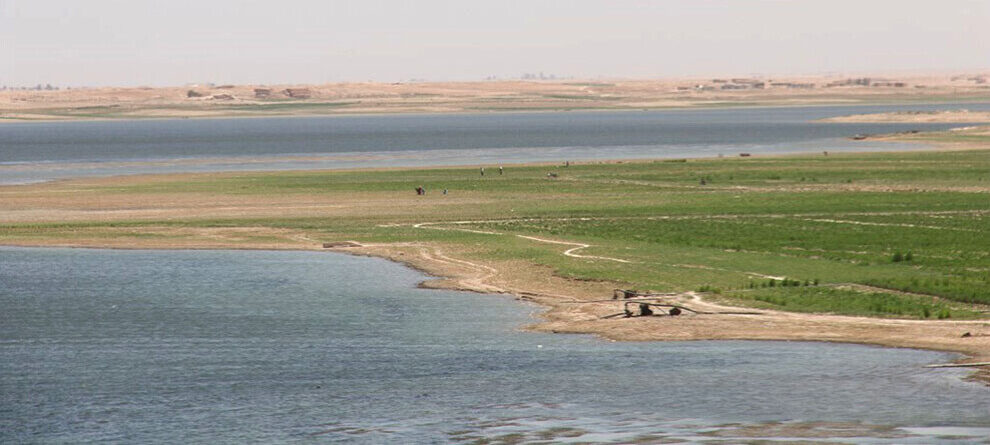There is an extreme water shortage in northern and eastern Syria. The water level in the Hesekê dam has dropped massively. A humanitarian catastrophe is looming in the greater regions of Hesekê and Deir ez-Zor.
The greater area of Hesekê and Deir ez-Zor is threatened with disaster. The water reservoirs in the south of Hesekê are only one-sixth full. According to reports from the Directorate of Agriculture and Water Resources, the water level in the Shaddadi region dropped from 605 metres to 120 metres. The drop in water levels has not only something to do with climate change. Since 2013, the Turkish state has been reducing the flow of rivers such as the Khabour or the Euphrates as a weapon against the region with the help of its GAP dam project. The climate catastrophe acts as a catalyst here. The Khabour River flows about 312 kilometres from its source in Northern Kurdistan to Rojava. It crosses the districts of Serêkaniyê and Til Temir and flows into the Êrişa reservoir south of Hesekê.
“Thousands of fish die”
Farmers are the first to feel the water shortage. Hassan al-Ali, a farmer and fisherman, told the ANHA news agency: “The groundwater level has dropped drastically. This is also leading to the death of thousands of fish. Fishing activity in the lake has drastically decreased. The lack of water threatens the livelihood of hundreds of fishermen in the region. The fish are threatened with extinction due to the decline in water. Fishing in the region is facing its end.”
Agriculture acutely threatened
Regarding the situation of the farmers, al-Ali stated: “Thousands of farmers along the Khabour River, which stretches from the south of the Erîşa district to the al-Basirah district east of Deir ez-Zor, will no longer have water. This will also have a negative impact on livestock farming in the region.” Al-Ali called for pressure to be put on the Turkish state to allow the rivers to flow freely. If things continue like this, he said, disaster is imminent.
Al-Ali reported that more than 20,000 hectares of agricultural land can no longer be supplied with water because the level is so low that further draining would lead to the lake drying up.
Abdurrahmen Siwelih from the Directorate of Agriculture and Water Resources of Shaddadi also reported that all irrigation programmes had to be stopped and therefore part of the land north of Deir ez-Zor can no longer be cultivated at all.
Diseases spread
Another danger posed by the lack of water is the spread of diseases. Siwelih reported that the number of cases of the serious disease leishmaniasis is increasing.

